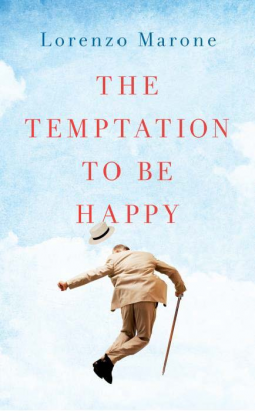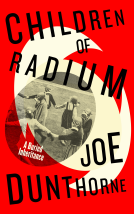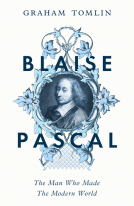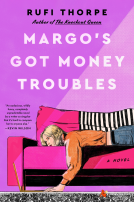
The Temptation to Be Happy
by Lorenzo Marone
This title was previously available on NetGalley and is now archived.
Send NetGalley books directly to your Kindle or Kindle app
1
To read on a Kindle or Kindle app, please add kindle@netgalley.com as an approved email address to receive files in your Amazon account. Click here for step-by-step instructions.
2
Also find your Kindle email address within your Amazon account, and enter it here.
Pub Date Oct 05 2017 | Archive Date Sep 14 2017
Description
Cesare is a seventy-seven-year-old widower and cynical troublemaker. He has lived his whole life by his own rules and has no intention of changing now. Aside from an intermittent fling with a nurse called Rossana, he spends his days avoiding the old cat lady next door and screening calls from his children.
But when the enigmatic Emma moves in next door with her strange and sinister husband, Cesare suspects there is more to their relationship than meets the eye. He enlists the other residents to help him investigate and soon discovers a new and unexpected sense of purpose that leads him to risk everything for a future he had never thought possible.
Advance Praise
‘A wonderful novel about ageing – ironic and light-footed’ Italien Magazin
‘A toast to real happiness!’ La Stampa
‘A wonderful novel about ageing – ironic and light-footed’ Italien Magazin
‘A toast to real happiness!’ La Stampa
Available Editions
| EDITION | Paperback |
| ISBN | 9781786072887 |
| PRICE | £12.99 (GBP) |
Featured Reviews
 Mandy J, Reviewer
Mandy J, Reviewer
There’s been a bit of a trend lately for grumpy old men books (A Man Called Ove, Athur Truluv, Harold Fry) in which a misanthropic elderly man is drawn back into a more fulfilling life, but this one, although a riff on an old topic, still manages to bring something new to the subject and I found it a really engaging and compelling narrative. Cesare is 77 and living alone after the death of his wife. His relationships with his son and daughter are fraught and difficult. He has a companion whom he sees occasionally and a friend in the same building but keeps his distance. One day a young couple move next door and Cesare is ineluctably drawn into the young woman's life. It’s a darker book than many similar ones, with some hard-hitting themes, although there’s plenty of humour too. Well-written, well-paced, and beautifully written, I found this book a real delight and very much enjoyed it.
 Pat M, Reviewer
Pat M, Reviewer
4★
“Luckily old age has come to my aid: I have worked out that for the sake of my health it’s better not to listen to family problems. After all, you never solve them.”
Cesare Annunziata is a grouchy old widower who likes to think he’s at odds with pretty much everyone. He’s determined to be miserable.
I don’t hate people, it’s just that I’m too caught up with myself to attend to anyone else. Even Caterina always said the same thing: ‘You’re not bad, you’re just an egoist.’ I’ve never agreed with that. An egoist is someone who pursues his own well-being at all costs, whereas I’ve never attained well-being. I’ve even failed as an egoist.”
Determined. His daughter actually dotes on him, but he finds her difficult to deal with.
“She’s a brusque character, all sharp edges and tetchiness. I would never deign to look at a woman like that; I like broad curves, the kind to be approached in a low gear. Sharp bends weary me – they force you to shift up a gear or two. My daughter is like an alpine pass, a sequence of switchback turns.”
His son, Dante, is obviously gay but has never told Cesare, who just wishes Dante would say something and get it over and done with. Cesare doesn’t care.
Where Cesare differs from someone like A Man Called Ove, or other lovable curmudgeons, is that he still loves the ladies! His appetite for admiring and commenting on them hasn’t dimmed in the slightest, and he maintains an active relationship with a prostitute, Rosanna, who’s become something of a friend.
“Rossana makes you think you’re a better man. Maybe she’s pretending, but even if she is, dear Christ, she’s a great actress.”
Some of his observations are a little uncomfortable, but having known many politically incorrect older men in my time, I know he’s not alone making them.
“At first I didn’t notice her; as a boy you try to flirt with older women, to feel important. And at the end of the day that isn’t so much of a mistake, because in fact you have your whole life to flirt with the younger ones.”
This began slowly for me, and I’ve shared a lot of quotes to indicate the tone and style of the translation. It grew on me after a while as did Cesare. I enjoyed the natural way he came to understand a bit more about himself and his family and to accept, even if grudgingly, what life still has to offer an old bloke.
The cat lady, his old mate, the art community his son is part of, his daughter’s possible affair – these are all things he’d kind of like to avoid (and enjoy his wine instead), but he can’t seem to help being dragged into their problems. He is a bit of a dirty old man, but he does have some redeeming qualities.
One final quote:
“I drain a glass of wine in one gulp. I think life must be a woman: when it needs to point out a mistake you’ve made, it doesn’t beat around the bush.”
I enjoyed it very much. Thanks to NetGalley and Oneworld Publications for the review copy from which I’ve quoted (so quotes may have changed).
 The Idle Woman ., Reviewer
The Idle Woman ., Reviewer
I was tempted by this book because I thought it was going to be another heartwarming tale along the lines of The Secret Diary of Hendrik Groen or My Grandmother Sends Her Regards and Apologises, but in fact it was a little harder and more cynical than I was expecting. It’s the tale of Cesare Annunziata, a grumpy old man in Naples, who has lost his wife, alienated his children and failed to make the most of his life. When a young couple move into the flat next door, Cesare plans to remain just as detached and crabby as ever. But fate has other plans, and this miserable old sod finds that, quite against his will, he’s beginning to feel an emotional investment in his new neighbour Emma.
As Cesare warms to his young neighbour, he begins to reassess his relationships with his own children: his brittle, unhappy daughter Sveva, who looks set to repeat so many of Cesare’s mistakes, and his son Dante, who is the most emotionally successful member of the family, but who has never dared come out to his crotchety father. Forty years of distant parenting can’t be overcome in a trice, but Cesare increasingly begins to realise the importance of having others there – and not just family, but lovers and friends too.
This all sounds a tiny bit saccharine, doesn’t it? Well, it isn’t. Cesare is definitely not the stereotypical cantankerous but cuddly old grandfather. He’s a hard man, selfish and self-centred, intolerant of weakness, impatient and, in many ways, unpleasant. He’s lustful and arrogant and a touch mischievous (though I don’t see this last as a negative trait). But perhaps this complex personality makes him more believable than the peevish old fellows with hearts of gold that I’ve read about before; even if I felt fonder of them. Cesare is a self-professed philanderer, who thrives on the thrill of the chase and who quickly tired of his late wife, before embarking on a series of quick-fix flings. Even now, in his late seventies, he regularly visits his former nurse Rossana, with whom he has a discreet financial arrangement. But, as Cesare opens his eyes to events in his own family, he realises that history is in danger of repeating itself, and perhaps he has the ability to – finally – make things better.
Marone’s novel is as prickly and inscrutable as Naples, where it’s set; but, although the city is often namechecked, it doesn’t feel quite as present as it does, for example, in Elena Ferrante’s novels, which simply couldn’t be set anywhere else. For all that, it does feel distinctly Italian, with its thin-walled apartments, gossips, old friendships, womanising paterfamilias, and concern to fare una bella figura. With its tragic substratum, which gives the novel a bitter sting in the tail, it isn’t quite as cosy as one might expect, but perhaps that makes it more bitterly believable.
This is a strong addition to the geriatric-lit subgenre, and a welcome reminder that men don’t switch at a certain age to be lovable old fellows who think of nothing but slippers and reading bedtime stories to children. On the contrary, inside every seventy-year-old, there’s almost certainly an eighteen-year-old wondering what the hell has gone wrong with the mirror.
For the review, please see my blog:
https://theidlewoman.net/2017/12/23/the-temptation-to-be-happy-lorenzo-marone/
Readers who liked this book also liked:
Jodi Picoult; Jennifer Finney Boylan
General Fiction (Adult), Literary Fiction, Women's Fiction
Patti Callahan Henry
General Fiction (Adult), Historical Fiction, Women's Fiction
Publishers Lunch
General Fiction (Adult), Nonfiction (Adult), Teens & YA


















